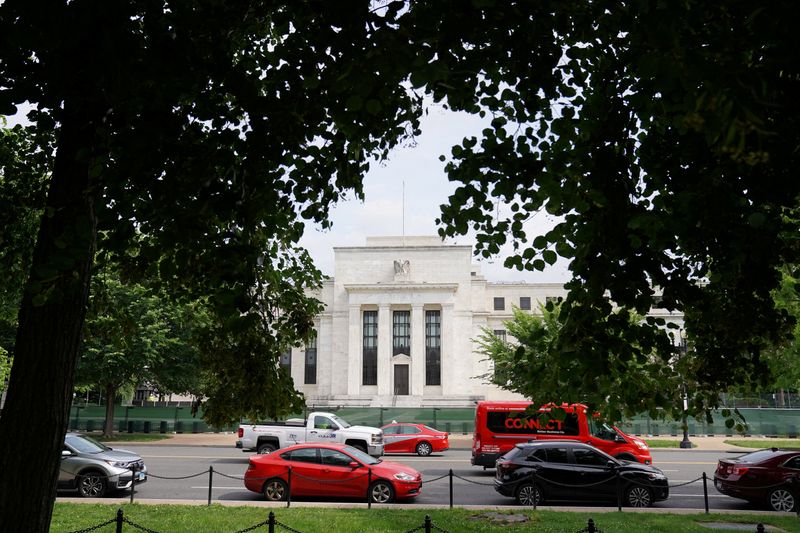(Reuters) -Federal Reserve policymakers are very likely to go ahead with cutting short-term U.S. borrowing costs by a quarter percentage point next week, traders bet on Thursday, after economic data suggested price pressures continue to ease.
Inflation by the Fed’s targeted measure, the year-over-year increase in the personal consumption expenditures index, was 2.1% in September, down from an upwardly revised 2.3% in August, a Commerce Department report showed. The Fed aims at 2% inflation.
A separate report from the Labor Department showed the Employment Cost Index rose 0.8% in the third quarter from the previous quarter, less than what economists had forecast and the smallest increase since the second quarter of 2021.
A rise in labor costs was among factors that had alarmed Fed policymakers back then, prompting their pivot to tighter policy.
“Policymakers at the Federal Reserve are likely to be encouraged by this data as wage growth measures at levels consistent with less inflation,” wrote Indeed Hiring Lab Economist Cory Stahle.
Futures contracts settling to the Fed’s policy rate put the chances of a 25 basis point cut next week at about 94%, and give a second 25 basis point in December about a 70% chance.
The reports – the last major economic data, along with Friday’s monthly jobs report, before the Fed’s Nov. 6-7 meeting – did not suggest the U.S. central bank’s battle with inflation is done.
Underlying price pressures, as tracked by the core PCE price index that excludes volatile food and energy, ticked up to 2.7% from a year earlier, higher than the 2.6% economists had expected and matching the prior month’s increase.
Some analysts warned that could prompt the Fed to cut the policy rate to a 4.5%-4.75% range next week, and then hold it there.
“We believe the Fed will pause any rate cuts in December amid fears about a re-acceleration of inflation,” wrote Michael Landsberg, chief investment officer at Landsberg Bennett Private Wealth Management.

